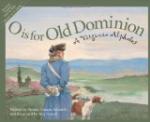The strange, unremembered grave was that of a woman. For, when we had scraped clear a little of the slab, we came upon the name Elizabeth. Our floating home was near enough to lend shovel and broom; and we undertook to free the tomb (that was itself being slowly buried) and to bring to light again the chiseled story of the long-ago Elizabeth who lay in this lonely place.
When the granite slab was uncovered and swept clean, we were able to read most of the words upon it, although the stone was cut almost as deep by the little fingers of rain and of frost as by the graver’s heavy hand that had itself gone to dust long ago. Slowly we found the words telling that there rested the body of Elizabeth Hollingshorst, whose husband, Thomas Hollingshorst, was a shipmaster; that her father was Mr. Piner Gordon of the family of Tilliangus in Aberdeenshire, Scotland; and that she died November 30, 1728.
The father’s name, Gordon (so proud a one in Aberdeenshire), and the use before it of the prefix Mr. (a term then synonymous with “gentleman” and never lightly given in those days of well-defined rank) show that this Elizabeth was of gentle birth. The words “Ship Master” tell of how the breath of the old North Sea had called Thomas Hollingshorst from the banks and braes and led him to point the bow of his merchant ship across seas, bound for England’s far-away colony. Little would he dream—crowding canvas to speed his cargo to the Virginia plantations—that his gentle-born Elizabeth was to find a grave in that feared American wilderness.
The longer we worked over the ancient stone the more we came to feel the pitiful meaning of it.
We felt that this Elizabeth was a true heart and a brave one, who ventured the perilous sea-voyage of the early days with her shipmaster husband. She did not come as other women came—to make a home in the new land and to have friends and neighbours there. She came, a passing stranger, upon her husband’s trading ship; a ship that would anchor but to exchange its English wares for the planter’s tobacco, and then turn prow again to the perils of the sea. When illness came in the new, wild land, how distant must have seemed Aberdeenshire in those days of the little ship and the slow sail! And here, longing for one more sight of Scottish heather, this Elizabeth died.
Seeking for her a last resting-place, the stranger ship moved up the river and came to anchor at the mouth of this creek. They lowered her gently over the ship’s side into a long-boat and then rowed up the stream into the forest. Here by the creek’s side they buried her, and (doubtless by the ship’s own compass) they orientated the forest grave. Then again the ship sailed across seas and bore sad tidings to some family of Gordons in Aberdeenshire.




